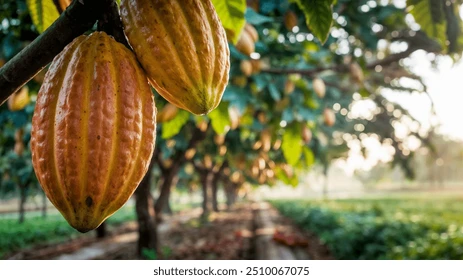Auditor General: Ghana’s Cocoa Export Volumes Plunge 50% in 2024, Earnings Still Rise

Ghana’s cocoa industry faced a significant downturn in production and export volumes in 2024, even as revenue from the sector experienced a surprising upswing. This paradox was detailed in the Auditor General’s latest report on the Bank of Ghana’s foreign exchange receipts and payments for the fiscal year ending December 31, 2024.
The report shows that the volume of cocoa beans exported in 2024 dropped drastically to 261,248 metric tons—representing more than a 50% decline from the 533,057 tons recorded in 2023. Exports of processed cocoa products, such as cocoa butter, paste, and powder, also fell from 240,897 tons in 2023 to 192,429 tons in 2024, signaling a broader contraction in the sector’s output.
Surprisingly, this sharp decline in export volume did not negatively affect revenue. Instead, total cocoa export earnings rose by 37.5%, increasing from US$1.26 billion in 2023 to US$1.73 billion in 2024. According to the report, this unexpected revenue growth was largely driven by a surge in global cocoa prices, which compensated for the lower export quantities. Additionally, the consistent performance of value-added cocoa products played a supporting role in sustaining foreign exchange inflows.
However, the report raises alarm over the drastic reduction in syndicated loan inflows—funds that are essential to supporting cocoa purchases and financing the sector’s operations. In 2024, syndicated loan proceeds plunged from US$681 million in 2023 to just US$50 million, representing a decline of over 92%. The Auditor General clarified that the US$50 million recorded was not derived from the traditional pre-export syndicated loan facility secured by the Ghana Cocoa Board (COCOBOD). Instead, it originated from a non-collateralized loan, and the funds were used to service debt obligations rather than support cocoa purchases.
This dramatic decline in financing highlights increasing difficulties in accessing credit for Ghana’s cocoa industry—a sector that heavily relies on these syndicated loans to facilitate purchasing and processing activities each crop season.
Interestingly, the Bank of Ghana had initially projected cocoa export revenues of approximately US$1 billion for the year. The actual earnings of US$1.73 billion, therefore, surpassed expectations by more than US$734 million. Cocoa ultimately accounted for 14.47% of Ghana’s total foreign exchange earnings of US$11.99 billion in 2024.
Despite the boost in earnings, analysts warn that the decline in export volume raises questions about the sustainability of the sector. The windfall gains achieved in 2024 were largely the result of favorable market prices rather than improvements in local production or supply chain efficiency. With Ghana’s cocoa farms facing challenges such as aging trees, limited access to inputs, climate change, and farmer migration, a further drop in production could place the country’s cocoa-dependent economy at risk—especially if global prices begin to soften.
Moreover, the drop in syndicated loan financing signals tighter financial conditions for the sector and a growing reluctance from lenders, possibly reflecting concerns about COCOBOD’s debt profile and repayment capacity. Without a reliable flow of credit and stronger investment in production, Ghana’s cocoa sector may struggle to maintain output levels, let alone expand.
The Auditor General’s findings serve as a critical reminder of the need for structural reforms in Ghana’s cocoa industry. Experts suggest that targeted investments in replanting programs, irrigation, pest control, and farmer incentives will be crucial to reversing the production decline and ensuring resilience against future price fluctuations.
In summary, while Ghana’s cocoa sector ended 2024 with record-breaking revenue, the dramatic fall in export volumes and financing presents clear warning signs. Without a strategic shift toward long-term sustainability and increased production capacity, the financial success of 2024 may prove to be short-lived.







